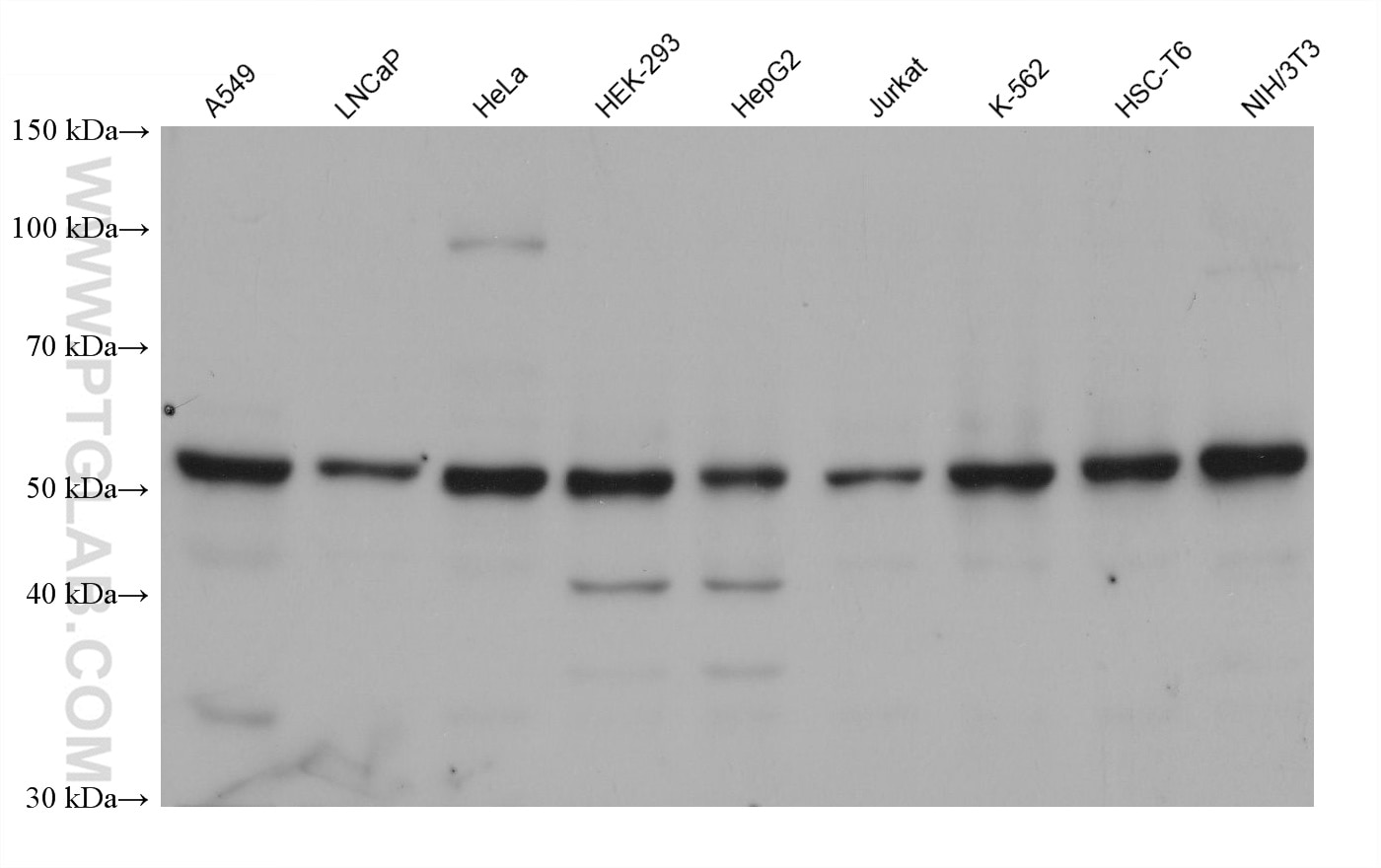STK24 Monoclonal antibody
STK24 Monoclonal Antibody for WB, ELISA
Host / Isotype
Mouse / IgG1
Reactivity
Human, mouse, rat
Applications
WB, ELISA
Conjugate
Unconjugated
CloneNo.
2B4C1
Cat no : 68522-1-Ig
Synonyms
Validation Data Gallery
Tested Applications
| Positive WB detected in | A549 cells, LNCaP cells, HeLa cells, HEK-293 cells, HepG2 cells, Jurkat cells, K-562 cells, HSC-T6 cells, NIH/3T3 cells |
Recommended dilution
| Application | Dilution |
|---|---|
| Western Blot (WB) | WB : 1:2000-1:10000 |
| It is recommended that this reagent should be titrated in each testing system to obtain optimal results. | |
| Sample-dependent, Check data in validation data gallery. | |
Product Information
68522-1-Ig targets STK24 in WB, ELISA applications and shows reactivity with Human, mouse, rat samples.
| Tested Reactivity | Human, mouse, rat |
| Host / Isotype | Mouse / IgG1 |
| Class | Monoclonal |
| Type | Antibody |
| Immunogen | STK24 fusion protein Ag31526 |
| Full Name | serine/threonine kinase 24 (STE20 homolog, yeast) |
| Calculated Molecular Weight | 49KD |
| Observed Molecular Weight | 50 kDa |
| GenBank Accession Number | NM_003576 |
| Gene Symbol | STK24 |
| Gene ID (NCBI) | 8428 |
| Conjugate | Unconjugated |
| Form | Liquid |
| Purification Method | Protein G purification |
| Storage Buffer | PBS with 0.02% sodium azide and 50% glycerol pH 7.3. |
| Storage Conditions | Store at -20°C. Stable for one year after shipment. Aliquoting is unnecessary for -20oC storage. 20ul sizes contain 0.1% BSA. |
Background Information
Serine/threonine-protein kinase 24 (STK24), also named MST3, belonging to GCK subfamily of STE20-like kinases, acts on both serine and threonine residues and promotes apoptosis in response to stress stimuli and caspase activation (PubMed: 10644707, PMID:12107159). STK24 and STK25 operate in the same cardiovascular development pathway with programmed cell death 10 (CCM3) (PMID: 20332113). It regulates axon outgrowth in forebrain neurons (PubMed: 17114295).
Protocols
| Product Specific Protocols | |
|---|---|
| WB protocol for STK24 antibody 68522-1-Ig | Download protocol |
| Standard Protocols | |
|---|---|
| Click here to view our Standard Protocols |


